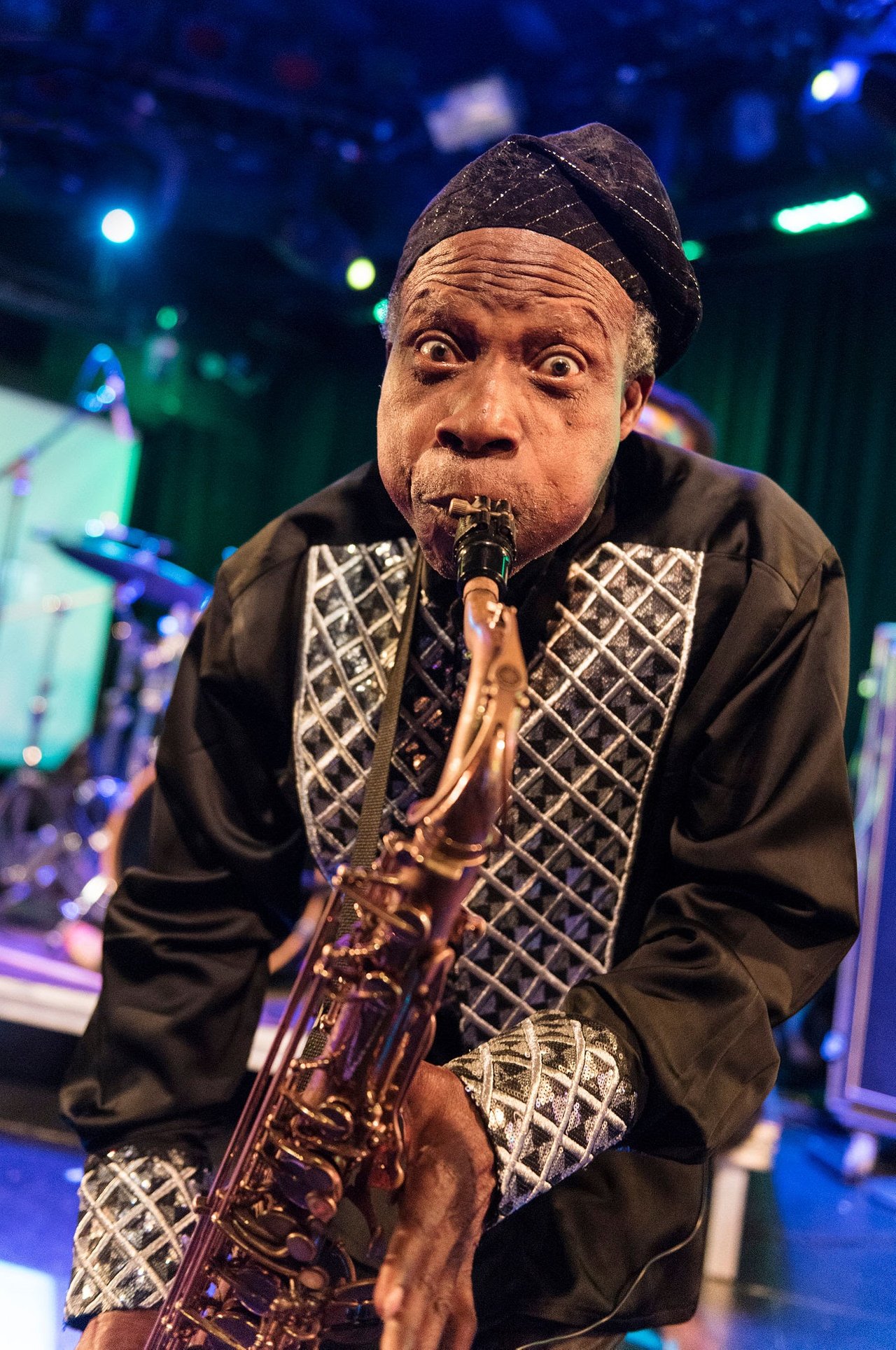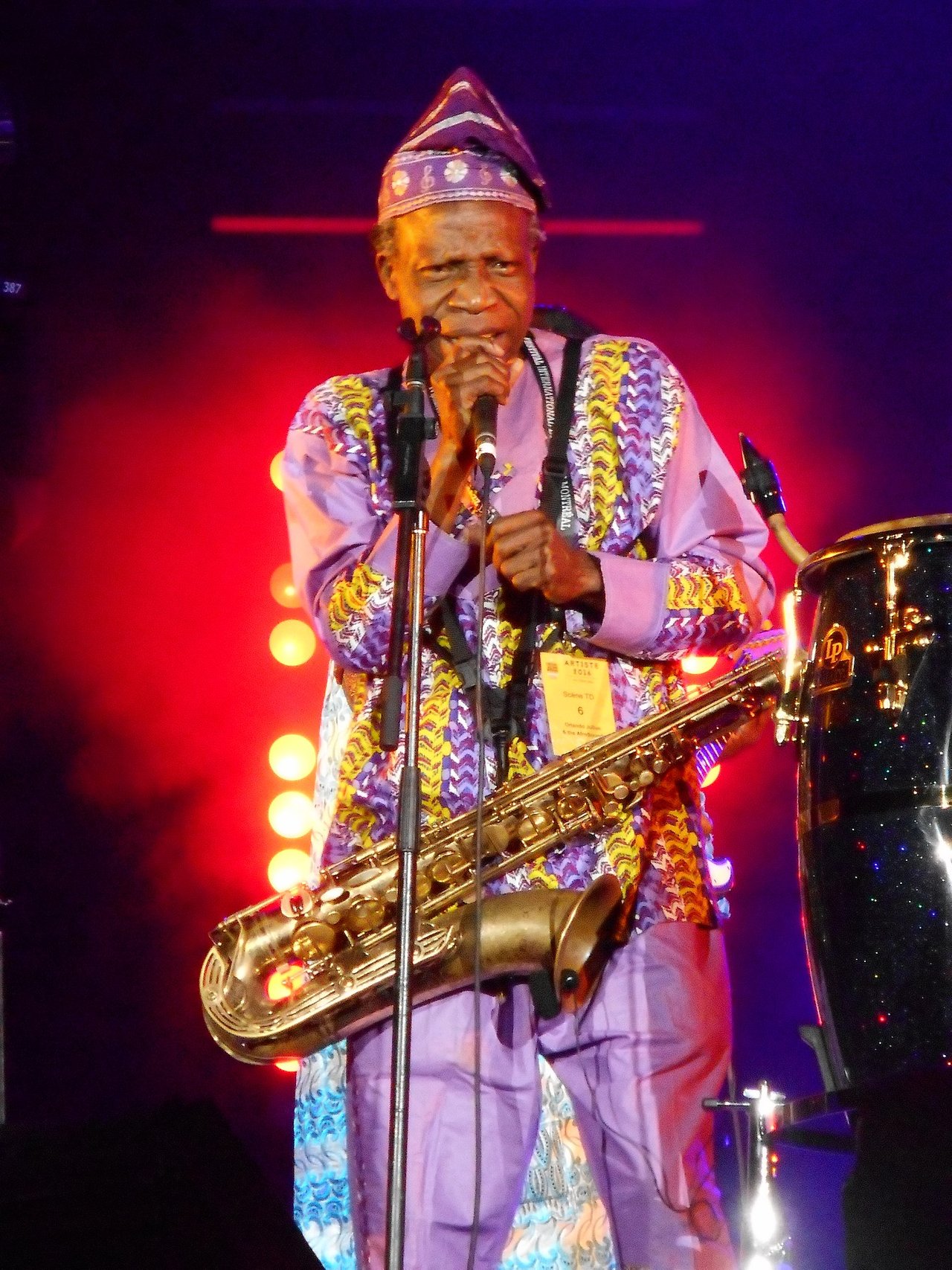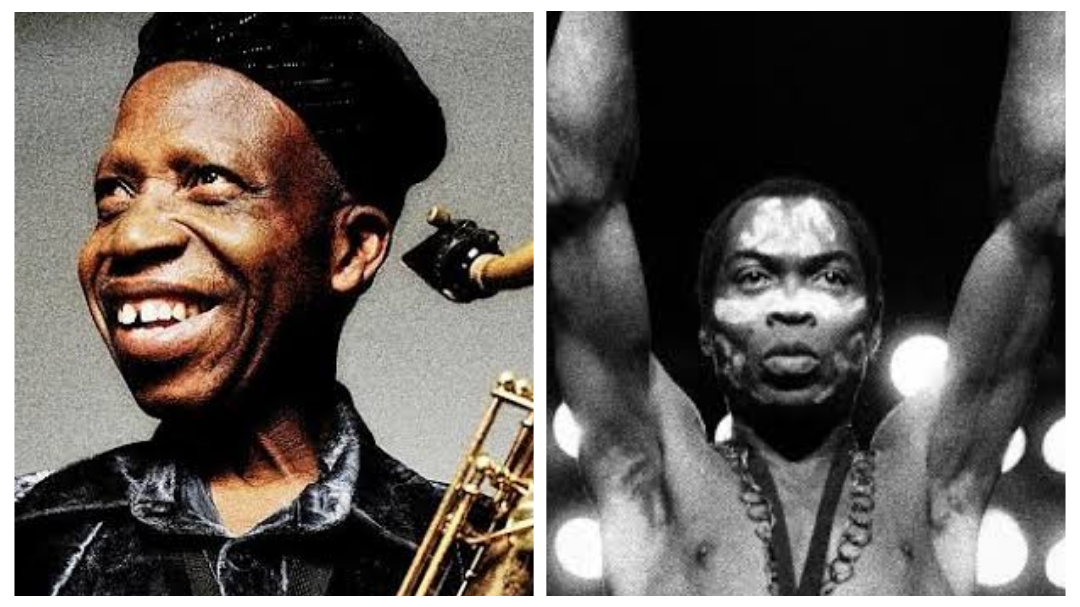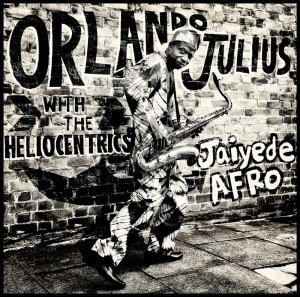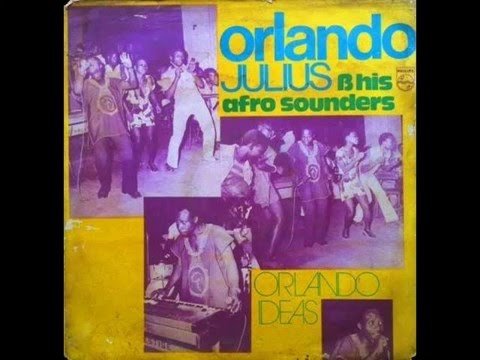Orlando was more popular for his performance as a bandleader especially with his saxophone bringing out the spice in his music. Some of the great icons he worked with had an ear for his sound because he dwelt comfortably on the minors. This was due to the influence of his Ijesha roots, which had most of their songs in minors.
At the time when Orlando began performing on the big stage in Nigeria before his overseas explorations, he used to be the spice of gig performances at the then Independence Hotel in Ibadan, one of the largest cities in West Africa.
His band, the Modern Aces, would treat various listeners who came from far and wide to hear his music.
It was then that Fela Kuti (the recognized Father of Afrobeat) devotedly attended his performances and would even sit with the band to learn from them. Fela did not play the saxophone at that time. He would later pick up the saxophone and form his band after learning from Orlando Julius.
In Orlando's words,
Fela came to my club every week to check out what we were doing. He sat in with us; he was still playing the trumpet in those days and hadn’t taken up the saxophone. Then when he was ready to form his own band, I gave him some of my musicians – Eddie Fayehun, Isiaka Adio and Ojo Ekeji – to get him started.
In his interview with BBC in 2017, he mentioned how that he introduced Fela to the saxophone.
Orlando as far back as the 1960s was already playing what is today popularly called afrobeat, but Orlando would simply call it jazz-highlife. He would later even refer to Fela's music, which had heavy influences from Orlando, jazz-highlife style of playing.
Èkémodé's music was a mush of various sounds built on the base of African sounds. And he would claim that he had to play such varieties because he had varied audiences. Students would come from the United States to listen to him.
His first big hit that brought him to limelight was in the year 2000. Though he was already a big star before then, his re-releasedalbum at that time Super Afro Soul brought him big attention.
The next big hit would be in 2014, when he was already over 70 years of age. He released Jaiyede Afro, which made it to number 13 on the Billboard World Album Charts.
Though not celebrated so much like the popular legends of music, Orlando remains a father of modern African music. And I would even call him "the Father of Afrobeat", together with Tony Allen, the great Afrobeat drummer and groove curator.
Múra Sísé by Orlando Julius Èkémodé and his Afro Sounders (From the 1966 album Super Afro Soul)
